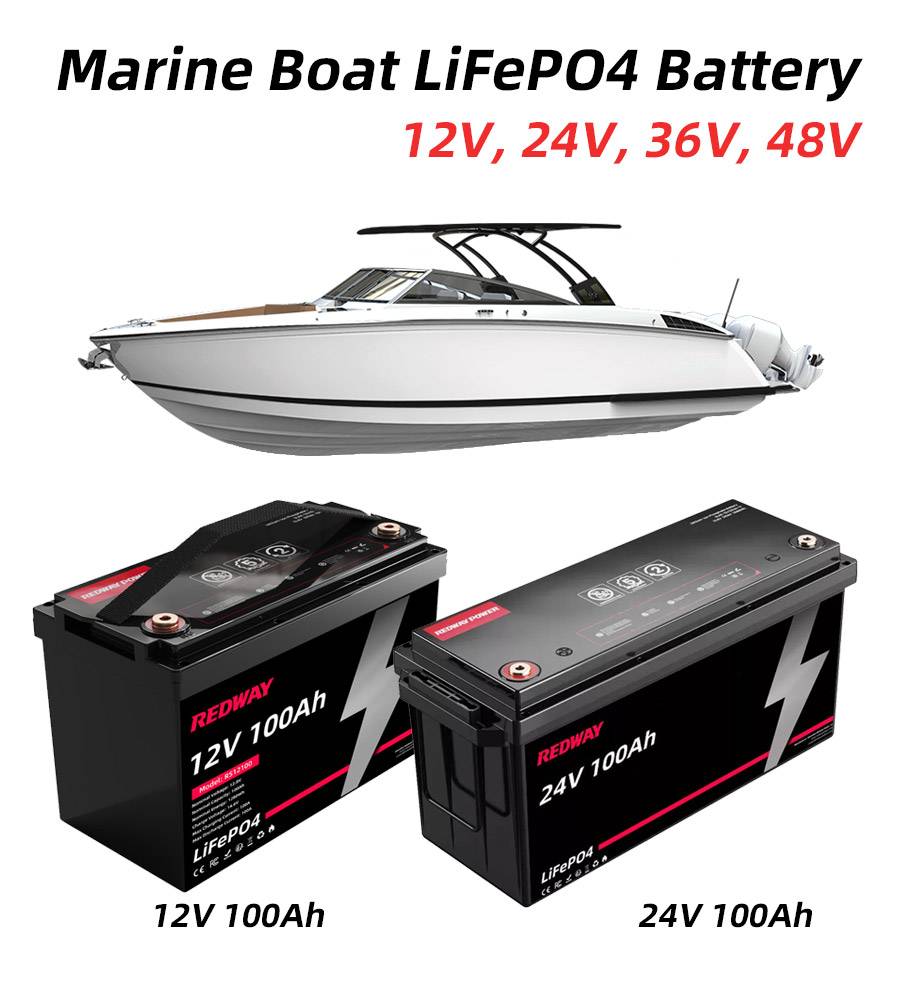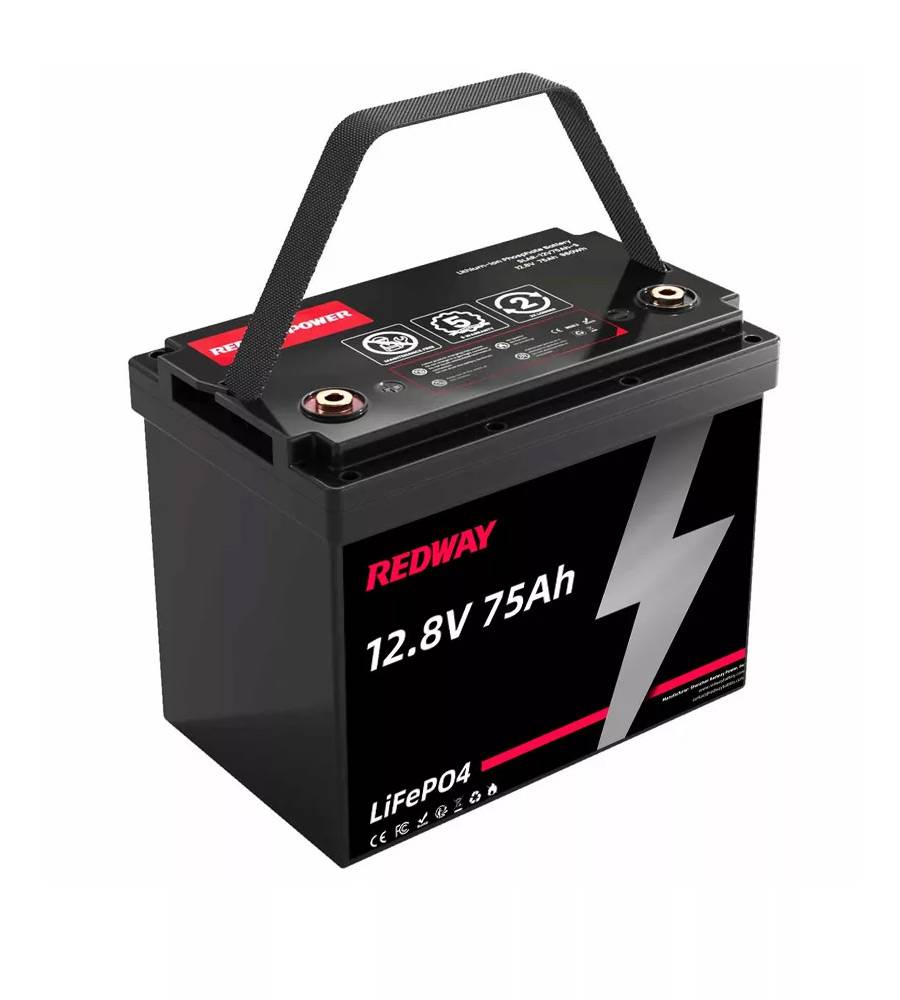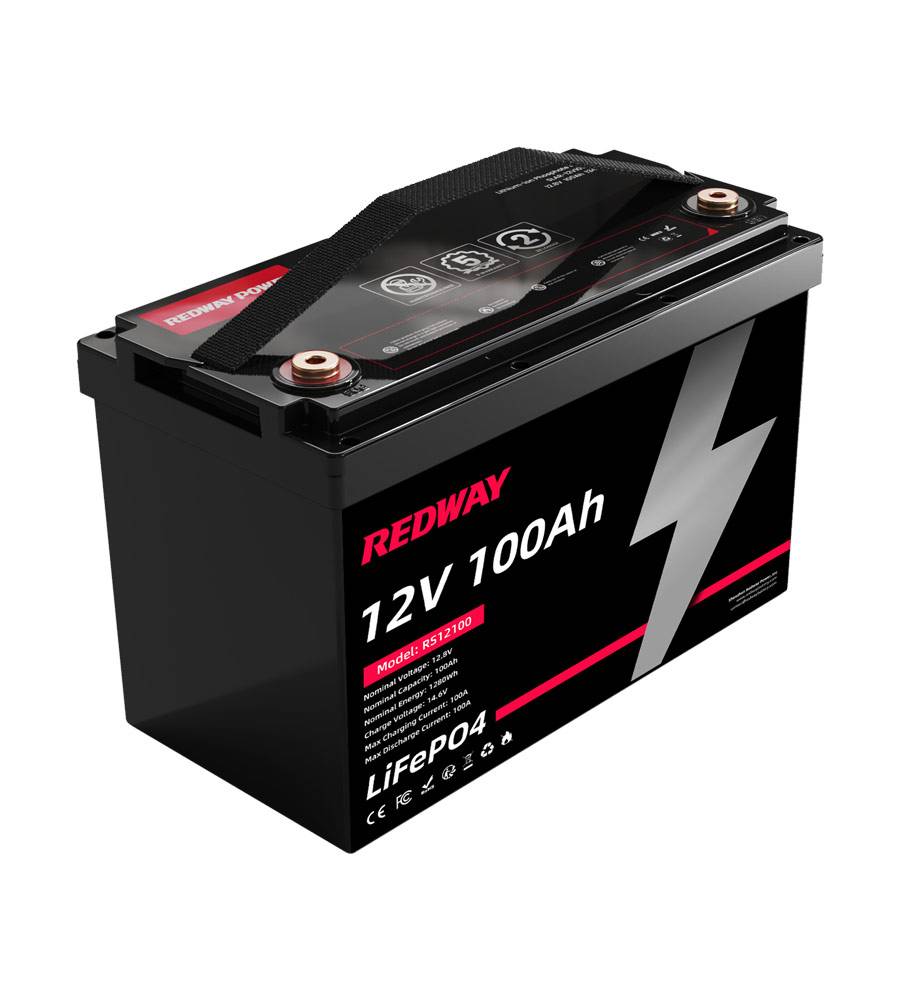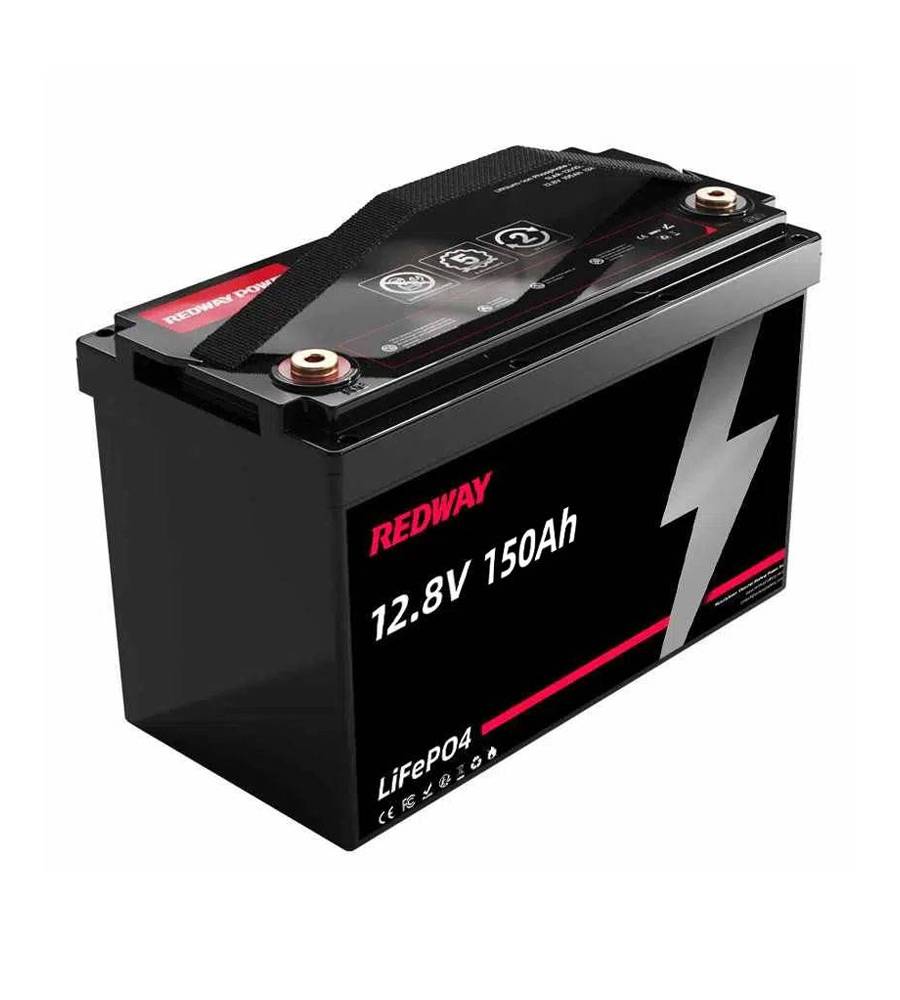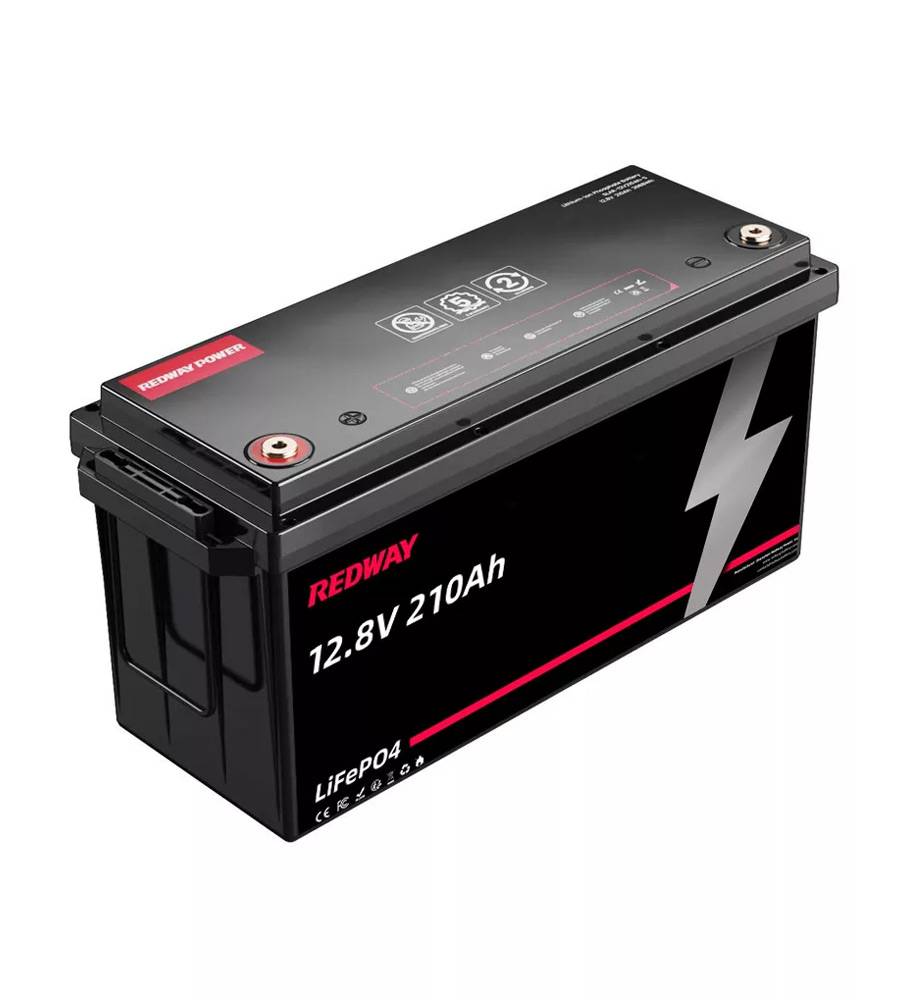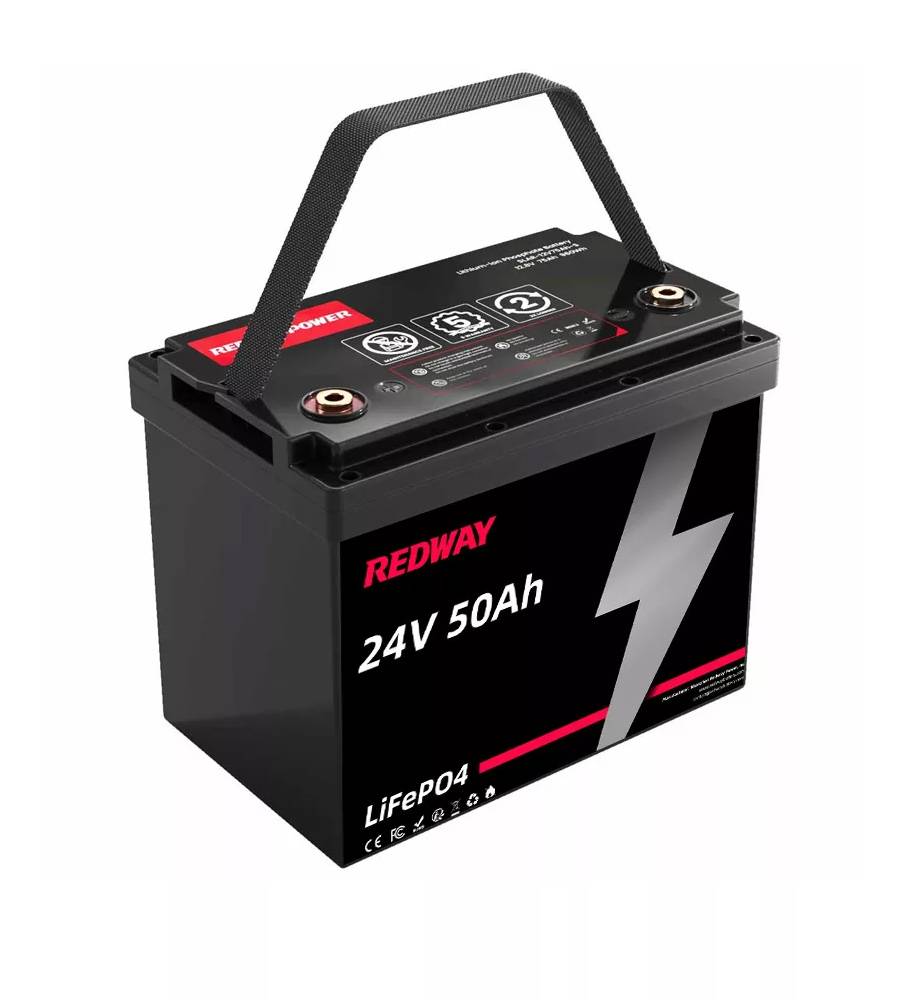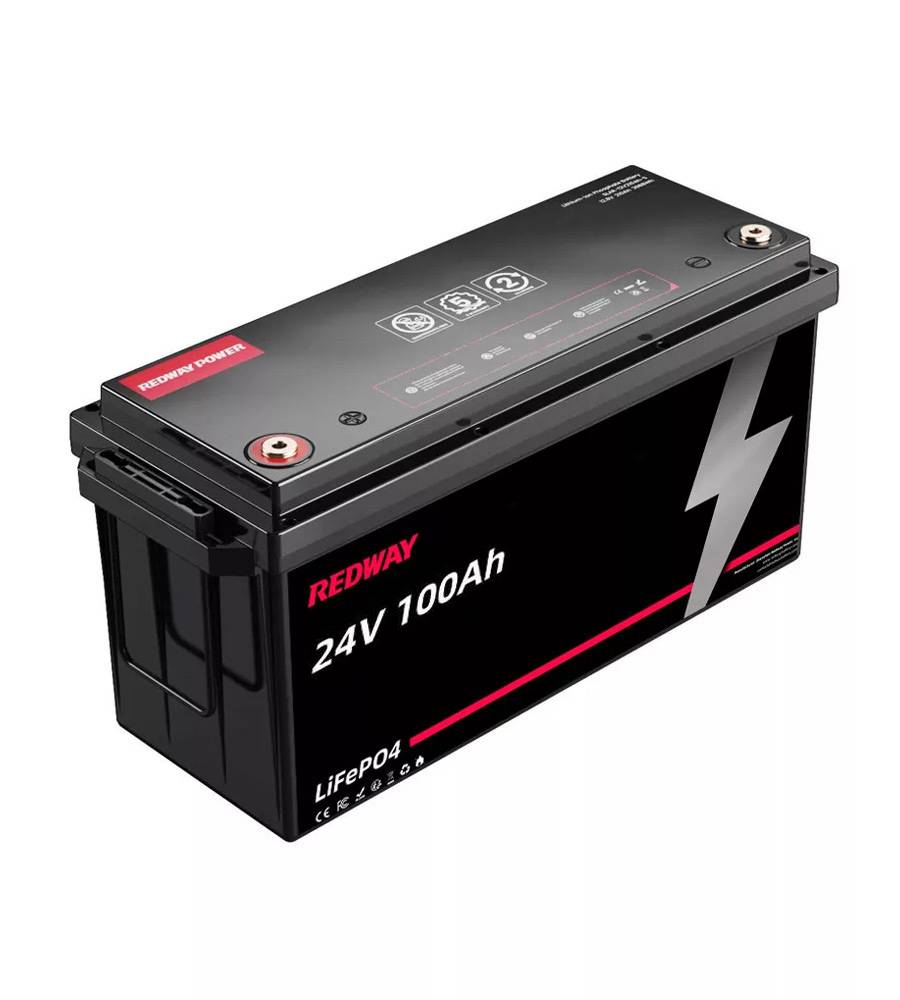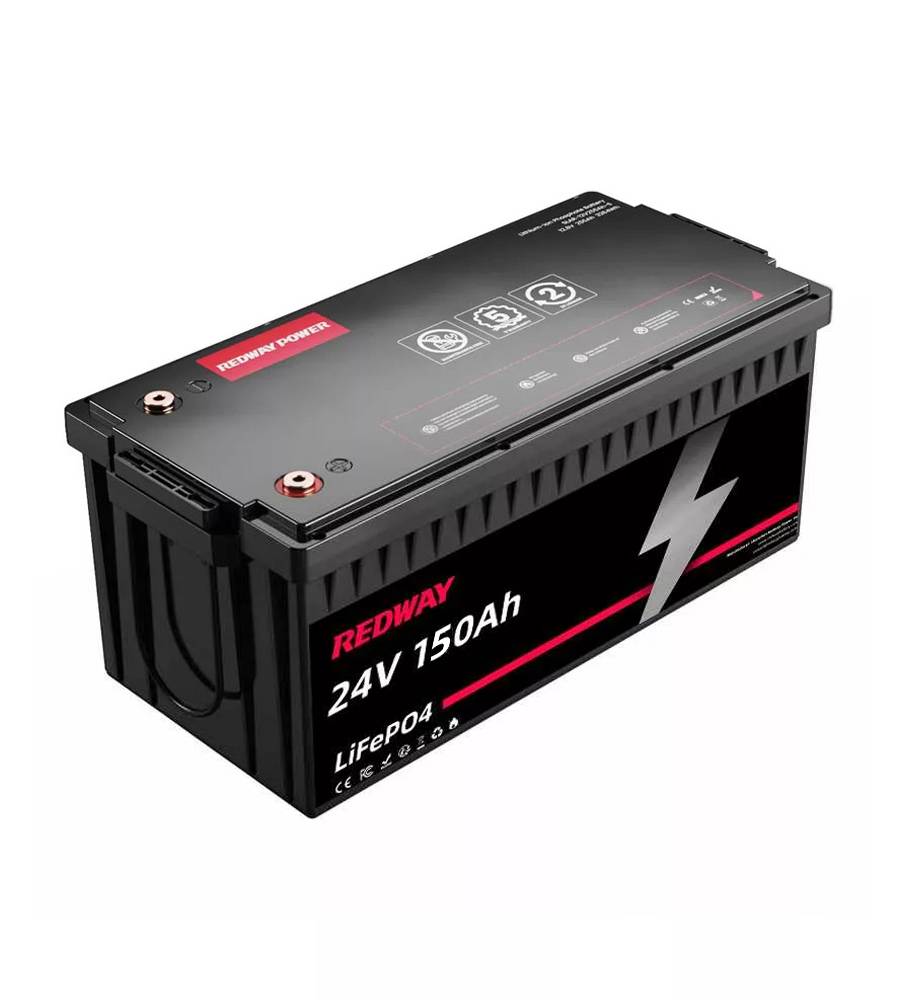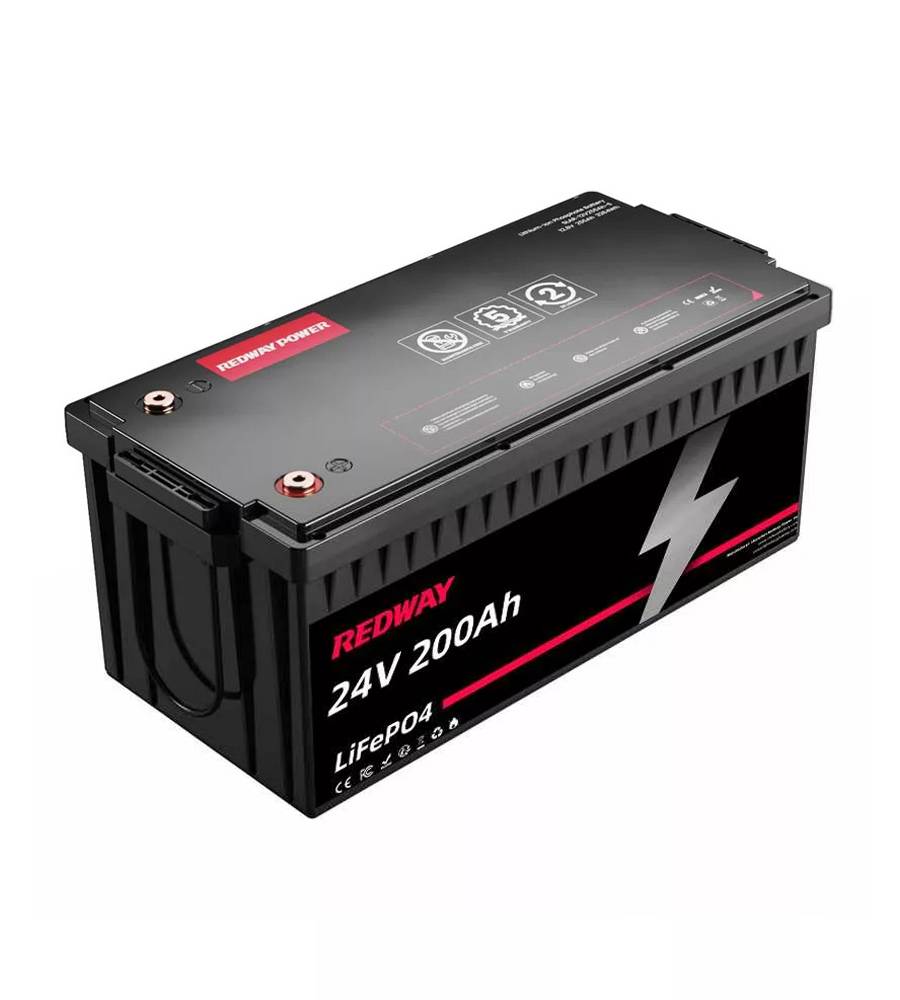- Forklift Lithium Battery
-
48V
- 48V 210Ah
- 48V 300Ah
- 48V 420Ah (949 x 349 x 569 mm)
- 48V 420Ah (950 x 421 x 450 mm)
- 48V 456Ah
- 48V 460Ah (830 x 630 x 590 mm)
- 48V 460Ah (950 x 421 x 450 mm)
- 48V 460Ah (800 x 630 x 600 mm)
- 48V 460Ah (820 x 660 x 470 mm)
- 48V 500Ah
- 48V 560Ah (810 x 630 x 600 mm)
- 48V 560Ah (950 x 592 x 450 mm)
- 48V 600Ah
- 48V 630Ah
-
48V
- Lithium Golf Cart Battery
- 12V Lithium Battery
12V 150Ah Lithium RV Battery
Bluetooth App | BCI Group 31
LiFePO4 Lithium
Discharge Temperature -20°C ~ 65°C
Fast Charger 14.6V 50A
Solar MPPT Charging - 24V Lithium Battery
- 36V Lithium Battery
- 48V Lithium Battery
-
48V LiFePO4 Battery
- 48V 50Ah
- 48V 50Ah (for Golf Carts)
- 48V 60Ah (8D)
- 48V 100Ah (8D)
- 48V 100Ah
- 48V 100Ah (Discharge 100A for Golf Carts)
- 48V 100Ah (Discharge 150A for Golf Carts)
- 48V 100Ah (Discharge 200A for Golf Carts)
- 48V 150Ah (for Golf Carts)
- 48V 160Ah (Discharge 100A for Golf Carts)
- 48V 160Ah (Discharge 160A for Golf Carts)
-
48V LiFePO4 Battery
- 60V Lithium Battery
-
60V LiFePO4 Battery
- 60V 20Ah
- 60V 30Ah
- 60V 50Ah
- 60V 50Ah (Small Size / Side Terminal)
- 60V 100Ah (for Electric Motocycle, Electric Scooter, LSV, AGV)
- 60V 100Ah (for Forklift, AGV, Electric Scooter, Sweeper)
- 60V 150Ah (E-Motocycle / E-Scooter / E-Tricycle / Tour LSV)
- 60V 200Ah (for Forklift, AGV, Electric Scooter, Sweeper)
-
60V LiFePO4 Battery
- 72V~96V Lithium Battery
- Rack-mounted Lithium Battery
- E-Bike Battery
- All-in-One Home-ESS
- Wall-mount Battery ESS
-
Home-ESS Lithium Battery PowerWall
- 24V 100Ah 2.4kWh PW24100-S PowerWall
- 48V 50Ah 2.4kWh PW4850-S PowerWall
- 48V 50Ah 2.56kWh PW5150-S PowerWall
- 48V 100Ah 5.12kWh PW51100-F PowerWall (IP65)
- 48V 100Ah 5.12kWh PW51100-S PowerWall
- 48V 100Ah 5.12kWh PW51100-H PowerWall
- 48V 200Ah 10kWh PW51200-H PowerWall
- 48V 300Ah 15kWh PW51300-H PowerWall
PowerWall 51.2V 100Ah LiFePO4 Lithium Battery
Highly popular in Asia and Eastern Europe.
CE Certification | Home-ESS -
Home-ESS Lithium Battery PowerWall
- Portable Power Stations
We accept OEM, ODM and SKD orders
LiFePO4 Marine Batteries Manufacturer
Redway Power
LiFePO4 Marine Batteries, One-Stop Solution
Redway Power specializes in LiFePO4 Marine Batteries, crafted for marine applications with precision. These rechargeable lithium iron phosphate batteries, designed by Redway, serve as a reliable power source for marine equipment such as trolling motors, navigation systems, and onboard electronics.
Known for high energy density, extended cycle life, and a lightweight design, Redway Power's LiFePO4 Marine Batteries stand out for their efficiency and safety compared to traditional batteries. Tailored for boaters and marine enthusiasts, these batteries exemplify Redway Power's commitment to providing advanced power solutions, ensuring improved performance, and prolonged energy storage on marine vessels, setting new standards in marine battery technology.
Redway Power for Lithium Batteries OEM/ODM
Best LiFePO4 Marine Batteries Manufacturer 2024
Custom LiFePO4 Marine Batteries
LiFePO4 Marine Batteries Wholesale
Looking for wholesale LiFePO4 marine batteries? Redway Battery offers a wide range of high-quality marine batteries at wholesale prices. Our LiFePO4 marine batteries are specifically designed for marine applications, providing superior performance, durability, and reliability. With higher energy density, longer cycle life, and faster charging, our batteries are the perfect choice for marine enthusiasts. Trust Redway Battery for all your marine battery needs.
What is the wholesale price of lithium battery?
You can click contact us or phone call us. We will give you multiple options of price.
Is Redway Power a trading company or factory?
Redway Power is a company with its own factory, integrating research, development, production, and sales.
How about the quality of Redway's LiFePo4 Battery product?
Redway Power boasts over 12 years of experience in LiFePO4 battery production and is an authorized supplier for CATL and BYD.
Can you do an OEM/ODM project?
Yes, we have engineers available to assist in designing and developing any related products.
What’s your MOQ?
MOQ varies according to battery voltage and capacity.
What payment terms can we accept?
We accept TT/Paypal/West Union, etc.
LiFePO4 Marine Batteries Knowledge
Looking to learn more about LiFePO4 Marine Batteries? These advanced batteries are specifically designed for marine applications, providing exceptional performance and reliability. With higher energy density, longer cycle life, and faster charging capabilities, LiFePO4 Marine Batteries are the preferred choice for marine enthusiasts. Discover the benefits of these batteries, including their lightweight design, low self-discharge rate, and long lifespan. Get all the knowledge you need about LiFePO4 Marine Batteries and make an informed decision for your marine power needs.
How do I properly store a 36v lithium marine battery?
To properly store a 36v lithium marine battery, keep it in a cool, dry place at a temperature between 32°F and 95°F (0°C to 35°C). Ensure the battery is charged to about 50-70% capacity before storage and check the charge level every few months to maintain optimal health.
What is the difference between lithium marine starting batteries and deep cycle batteries?
Lithium marine starting batteries are designed for high bursts of power to start engines, while deep cycle batteries provide steady power over longer periods. Starting batteries have thinner plates for quick discharge, whereas deep cycle batteries have thicker plates for sustained energy delivery.
Are marine lithium-ion batteries environmentally friendly?
Yes, marine lithium-ion batteries are more environmentally friendly than traditional lead-acid batteries. They contain no toxic materials, have a longer lifespan, and can be recycled more easily. Their efficiency reduces overall waste and environmental impact.
Can I use a 24v lithium marine battery for trolling motors?
Yes, a 24v lithium marine battery can be used for trolling motors. It provides sufficient power and efficiency for various trolling motor applications, ensuring reliable performance during fishing trips or other marine activities.
How do I select the best lithium marine cranking battery?
To select the best lithium marine cranking battery, consider factors like cold cranking amps (CCA), size compatibility, weight, and brand reputation. Ensure it meets your engine’s starting requirements and is designed specifically for marine applications.
What are the key features of ionic lithium marine batteries?
Key features of ionic lithium marine batteries include high energy density, lightweight design, fast charging capabilities, and long cycle life (up to 10 years). They also offer built-in safety mechanisms to prevent overheating and over-discharging.
Which lithium marine battery charger is recommended for my battery type?
For lithium marine batteries, it is recommended to use a charger specifically designed for LiFePO4 technology. Chargers from brands like ProMariner or Ionic provide optimal charging performance and safety features tailored for lithium batteries.
How do I ensure the safety of my 36v lithium ion marine battery?
To ensure the safety of your 36v lithium ion marine battery, use a compatible charger, avoid deep discharges, and store it in a cool environment. Regularly inspect connections and monitor for signs of damage or swelling.
Why are some lithium marine batteries more expensive than others?
Some lithium marine batteries are more expensive due to factors such as advanced technology, higher quality materials, longer lifespan, and better performance. Brands with strong reputations often charge more for their reliability and warranty options.
Can I use a lithium marine battery for both starting and deep cycle applications?
Yes, some lithium marine batteries can be used for both starting and deep cycle applications. However, it’s essential to choose a dual-purpose battery specifically designed for this versatility to ensure optimal performance in both scenarios.
How do I know if my marine lithium battery is fully charged?
You can determine if your marine lithium battery is fully charged by checking the voltage with a multimeter; it should read close to the maximum voltage specified by the manufacturer. Some models also feature built-in indicators or smartphone apps for monitoring charge levels.
What are the top brands for marine lithium batteries?
Top brands for marine lithium batteries include PowerHouse Lithium, Ionic Battery, and Abyss Battery. These manufacturers are known for their quality products that offer reliability, performance, and innovative features tailored for marine use.
Which 12v lithium ion marine battery offers the best performance?
The 12v lithium ion marine battery that offers the best performance typically features LiFePO4 technology from reputable brands like PowerHouse Lithium or Ionic Battery. Look for models with high discharge rates and long cycle life for optimal results.
How do I install a marine battery box for electronics with a lithium small battery box?
To install a marine battery box for electronics with a small lithium battery box, securely mount the box in a dry area of your boat. Ensure proper ventilation if required by local regulations and connect cables according to manufacturer instructions to prevent short circuits.
Does a lithium marine battery require a specific type of charger?
Yes, a lithium marine battery requires a specific type of charger designed for LiFePO4 technology. Using an appropriate charger ensures safe charging and extends the life of the battery by preventing overcharging or damage.
How do I properly store a 36v lithium marine battery?
To properly store a 36v lithium marine battery, keep it in a cool, dry place at a temperature between 32°F and 95°F (0°C to 35°C). Ensure the battery is charged to about 50-70% capacity before storage and check the charge level every few months to maintain optimal health.
What is the difference between lithium marine starting batteries and deep cycle batteries?
Lithium marine starting batteries are designed for high bursts of power to start engines, while deep cycle batteries provide steady power over longer periods. Starting batteries have thinner plates for quick discharge, whereas deep cycle batteries have thicker plates for sustained energy delivery.
Are marine lithium-ion batteries environmentally friendly?
Yes, marine lithium-ion batteries are more environmentally friendly than traditional lead-acid batteries. They contain no toxic materials, have a longer lifespan, and can be recycled more easily. Their efficiency reduces overall waste and environmental impact.
Can I use a 24v lithium marine battery for trolling motors?
Yes, a 24v lithium marine battery can be used for trolling motors. It provides sufficient power and efficiency for various trolling motor applications, ensuring reliable performance during fishing trips or other marine activities.
How do I select the best lithium marine cranking battery?
To select the best lithium marine cranking battery, consider factors like cold cranking amps (CCA), size compatibility, weight, and brand reputation. Ensure it meets your engine’s starting requirements and is designed specifically for marine applications.
What are the key features of ionic lithium marine batteries?
Key features of ionic lithium marine batteries include high energy density, lightweight design, fast charging capabilities, and long cycle life (up to 10 years). They also offer built-in safety mechanisms to prevent overheating and over-discharging.
Which lithium marine battery charger is recommended for my battery type?
For lithium marine batteries, it is recommended to use a charger specifically designed for LiFePO4 technology. Chargers from brands like ProMariner or Ionic provide optimal charging performance and safety features tailored for lithium batteries.
How do I ensure the safety of my 36v lithium ion marine battery?
To ensure the safety of your 36v lithium ion marine battery, use a compatible charger, avoid deep discharges, and store it in a cool environment. Regularly inspect connections and monitor for signs of damage or swelling.
Why are some lithium marine batteries more expensive than others?
Some lithium marine batteries are more expensive due to factors such as advanced technology, higher quality materials, longer lifespan, and better performance. Brands with strong reputations often charge more for their reliability and warranty options.
Can I use a lithium marine battery for both starting and deep cycle applications?
Yes, some lithium marine batteries can be used for both starting and deep cycle applications. However, it’s essential to choose a dual-purpose battery specifically designed for this versatility to ensure optimal performance in both scenarios.
How do I know if my marine lithium battery is fully charged?
You can determine if your marine lithium battery is fully charged by checking the voltage with a multimeter; it should read close to the maximum voltage specified by the manufacturer. Some models also feature built-in indicators or smartphone apps for monitoring charge levels.
What are the top brands for marine lithium batteries?
Top brands for marine lithium batteries include PowerHouse Lithium, Ionic Battery, and Abyss Battery. These manufacturers are known for their quality products that offer reliability, performance, and innovative features tailored for marine use.
Which 12v lithium ion marine battery offers the best performance?
The 12v lithium ion marine battery that offers the best performance typically features LiFePO4 technology from reputable brands like PowerHouse Lithium or Ionic Battery. Look for models with high discharge rates and long cycle life for optimal results.
How do I install a marine battery box for electronics with a lithium small battery box?
To install a marine battery box for electronics with a small lithium battery box, securely mount the box in a dry area of your boat. Ensure proper ventilation if required by local regulations and connect cables according to manufacturer instructions to prevent short circuits.
Does a lithium marine battery require a specific type of charger?
Yes, a lithium marine battery requires a specific type of charger designed for LiFePO4 technology. Using an appropriate charger ensures safe charging and extends the life of the battery by preventing overcharging or damage.
Is it safe to use a 36 volt lithium ion marine battery in all marine applications?
Yes, a 36-volt lithium-ion marine battery is generally safe for various marine applications, including powering electric boats and trolling motors. However, ensure that the battery meets specific requirements for your equipment and is installed correctly to prevent overheating or other issues.
How do I determine the best lithium marine batteries for my needs?
To determine the best lithium marine batteries for your needs, consider factors such as capacity (Ah), weight, size, discharge rate, and compatibility with your equipment. Evaluate your power requirements based on usage patterns and consult product reviews for reliable options.
What are the most affordable lithium marine batteries available?
Affordable lithium marine batteries can be found from brands like Dakota Lithium and Black Oak. These companies offer competitive pricing without compromising quality, providing good performance and reliability for various marine applications.
Where can I find the cheapest lithium marine batteries without compromising quality?
You can find affordable lithium marine batteries at reputable online retailers such as Amazon or specialized battery retailers like Abyss Battery. Look for sales, discounts, and customer reviews to ensure you get quality products at lower prices.
Can I use a lithium marine battery in extreme weather conditions?
Yes, many lithium marine batteries are designed to perform well in extreme weather conditions. However, it’s essential to check the manufacturer’s specifications regarding temperature ranges to ensure optimal performance and safety during harsh environments.
How do I ensure my marine lithium battery is waterproof?
To ensure your marine lithium battery is waterproof, choose models with an IP67 or higher rating. Additionally, install the battery in a well-sealed box or compartment that prevents water ingress during operation or storage in wet conditions.
What are the advantages of using a lithium marine battery charger?
Lithium marine battery chargers offer several advantages, including faster charging times, improved efficiency, and built-in safety features that prevent overcharging. They are specifically designed to optimize charging cycles for lithium batteries, extending their lifespan.
Which 36 volt lithium ion marine battery is the most reliable?
The most reliable 36-volt lithium-ion marine batteries typically come from reputable brands like Dakota Lithium and PowerHouse Lithium. Look for models with high cycle life ratings and positive customer feedback regarding performance and durability.
How do I compare different lithium marine batteries to choose the best one?
To compare different lithium marine batteries, assess key specifications such as capacity (Ah), weight, dimensions, discharge rates, cycle life, and warranty options. Reading customer reviews and expert recommendations can also provide valuable insights into performance.
What are the safety precautions for using lithium marine batteries?
Safety precautions for using lithium marine batteries include ensuring proper installation, avoiding over-discharging, using compatible chargers, and regularly inspecting connections. Store batteries in a cool environment and monitor for signs of damage or swelling.
Can I use a lithium marine battery for both marine and RV applications?
Yes, you can use a lithium marine battery for both marine and RV applications. Ensure that the battery’s specifications meet the power requirements of both setups for optimal performance and reliability.
How Does LFP Self-Discharge Rate Compare to Other Lithium-Ion Batteries?
LiFePO4 (LFP) batteries have a self-discharge rate of only 2% per month, significantly lower than lead acid batteries. This means that LFP batteries can retain their charge for longer periods without significant power loss. With consistent power delivery and a low self-discharge rate, LiFePO4 batteries are a reliable and efficient energy storage solution. Know more.
Why Are LFP Batteries a Great Choice for Marine Applications?
LFP batteries are an excellent choice for marine applications due to their strong safety profile. The stable chemistry of lithium iron phosphate in LFP batteries ensures that they do not overheat or catch fire easily. This makes LFP batteries ideal for use in environments where safety is crucial, such as confined spaces aboard boats or in recreational vehicles. Know more.
What Is the Energy Density of LFP Batteries and How Does It Benefit Marine Use?
LFP batteries offer a higher energy density compared to other battery types, such as lead-acid batteries. With an energy density of around 125-160 Wh/kg, LFP batteries can store a significant amount of energy in a compact size. This higher energy density is advantageous for marine applications, as it allows for longer operating times and increased power storage capacity on boats and other marine vessels. Know more.
How Does Temperature Tolerance Impact LFP Batteries in Marine Use?
LiFePO4 (LFP) batteries have a temperature tolerance range of -20°C to 60°C (-4°F to 140°F), with optimal performance achieved between -10°C to 50°C (14°F to 122°F). This temperature tolerance is crucial for marine use as it allows LFP batteries to operate effectively in various temperature conditions encountered in marine environments, ensuring reliable power storage and performance. Know more.
How Does LFP Battery Cycle Life Compare to Other Batteries?
LFP batteries have a significantly longer cycle life compared to other battery types, such as lithium-ion batteries. With a cycle life of about 5,000 cycles, which is roughly ten years of use, LFP batteries offer exceptional durability and longevity. This extended cycle life makes LFP batteries a cost-effective choice for marine use and other applications, ensuring reliable power storage over an extended period. Know more.
Why Have LFP Batteries Become Popular in the Marine Industry?
LFP batteries have gained popularity in the marine industry due to their lightweight design, longer lifespan, and ability to provide consistent power in demanding environments. Their lightweight nature makes them suitable for marine applications, while their extended lifespan reduces the need for frequent replacements. Additionally, LFP batteries offer reliable and consistent power, ensuring optimal performance on boats and other marine vessels. Know more.
How Safe Are LiFePO4 Batteries for Use on Boats?
If you’re looking for a reliable, safe, long-lasting, and more expensive battery option for your boat, LiFePO4 batteries are the way to go. Known for their safety and reliability, LiFePO4 batteries provide a suitable power solution for marine environments. Know more.
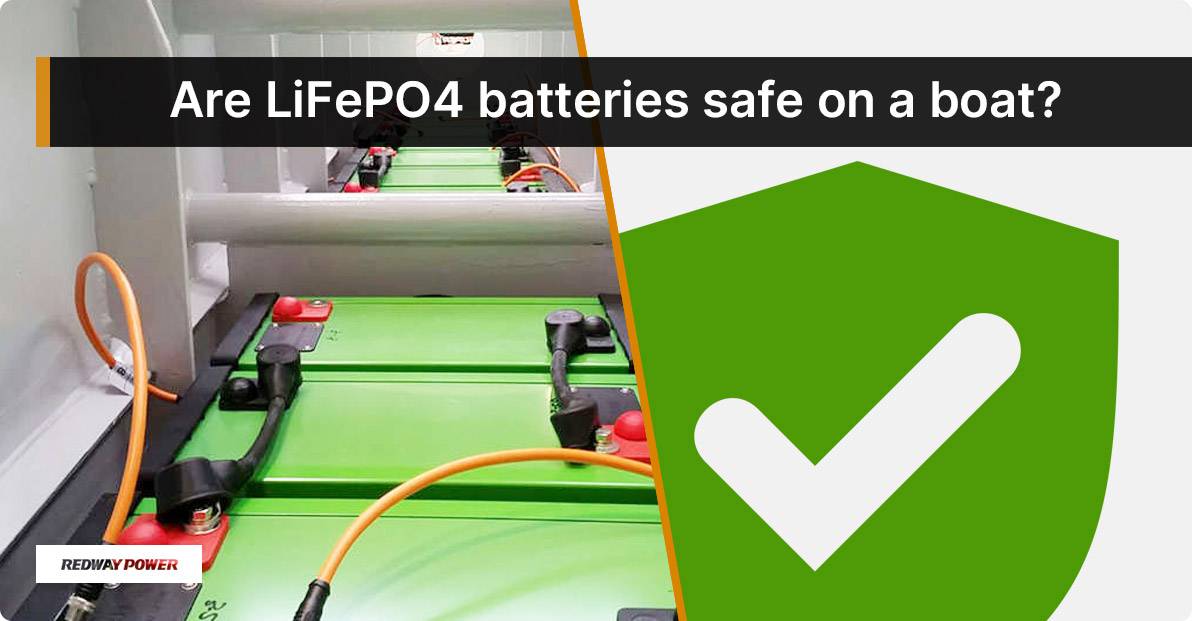
What Are the Problems with Lithium Batteries in Boats?
The problems with lithium batteries in boats include the risk of fire due to exposure to saltwater. Saltwater exposure can cause severe damage to lithium-ion batteries, leading to a chemical reaction and an increased fire risk. Know more.
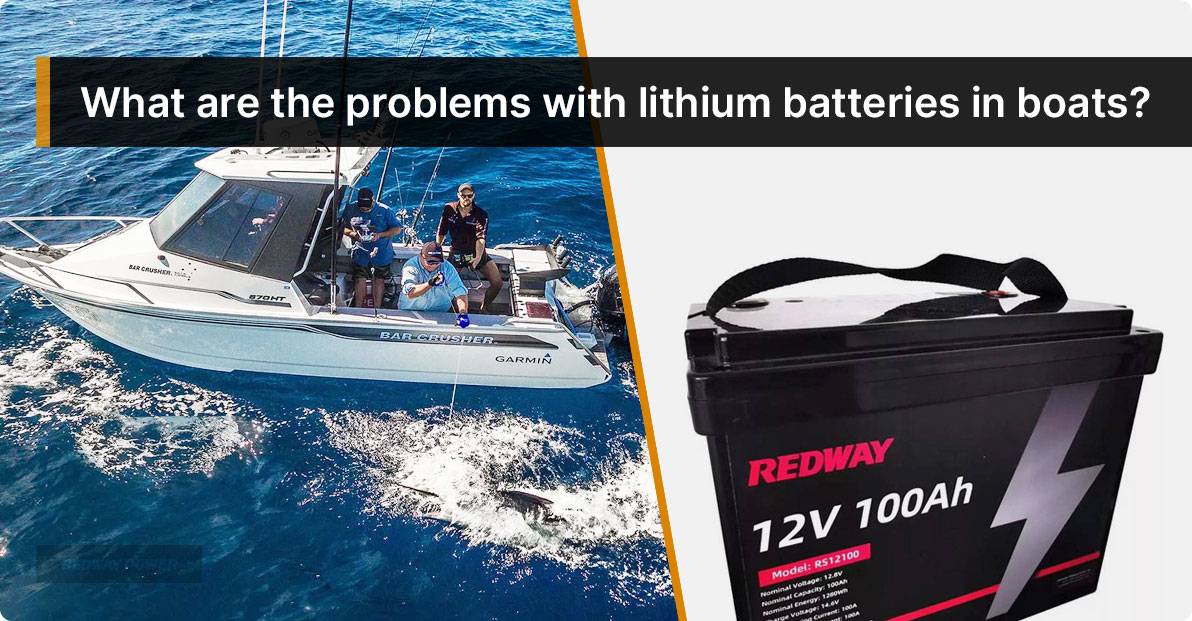
What Are the Safest Batteries for Boats?
Gel batteries are often considered the safest batteries for boats due to their high energy density and reliability. They have a lower risk of spilling acid, making them a safer option if the boat is accidentally tipped over or experiences movement on the water. Know more.
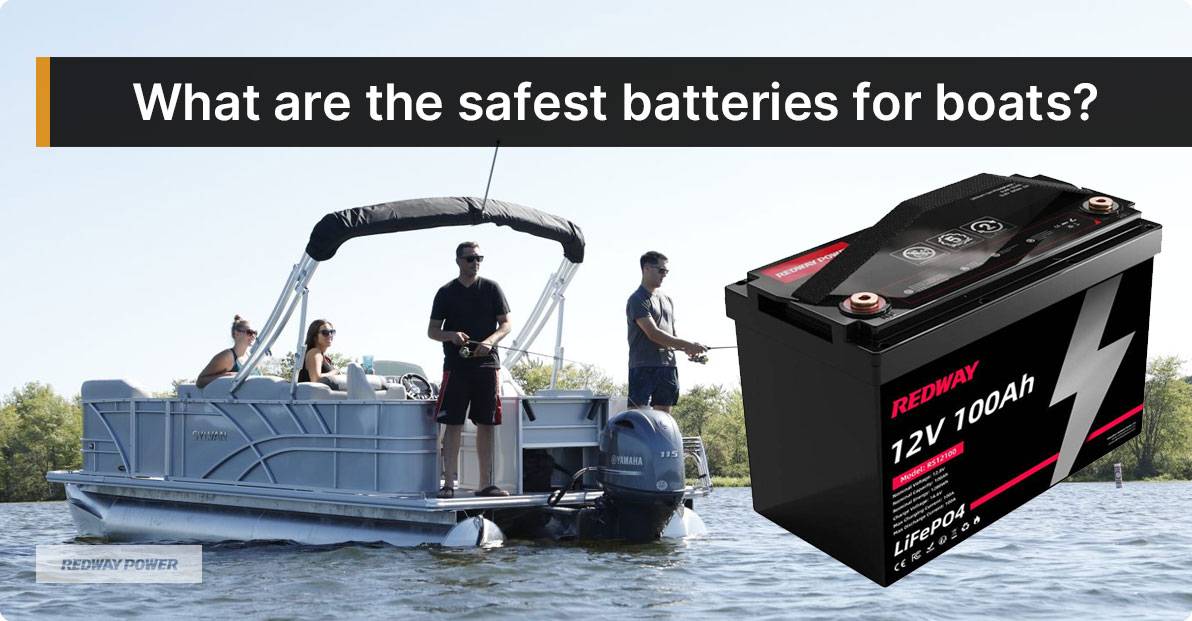
Can a Boat Motor Effectively Charge a Lithium Battery?
No, a boat motor’s alternator cannot charge a lithium battery like conventional batteries. To charge a lithium battery on the go, a DC/DC charger specifically designed for lithium batteries, such as those produced by Sterling Power or Victron, is required. Know more.
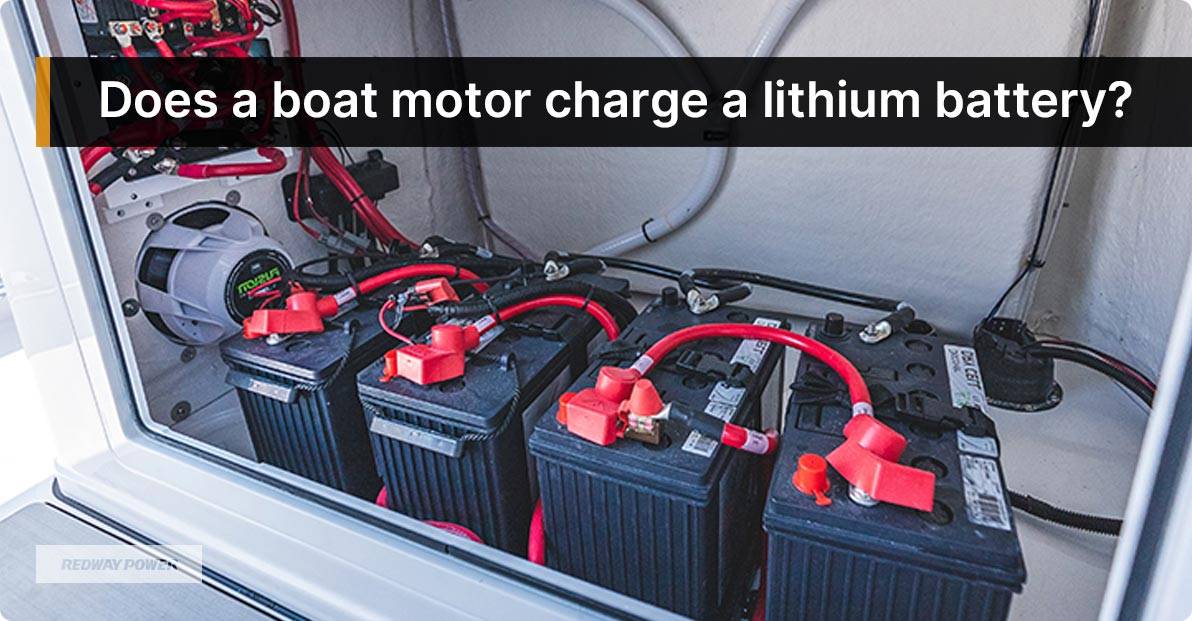
Should I Use a Trickle Charger for My Boat Battery Over Winter?
Yes, trickle charging your boat battery over the winter is a good practice to prevent it from losing charge while in storage. A trickle charger provides a low, steady charge to maintain the battery’s power level. It is important to invest in a reliable trickle charger to avoid overcharging the battery. Know more.
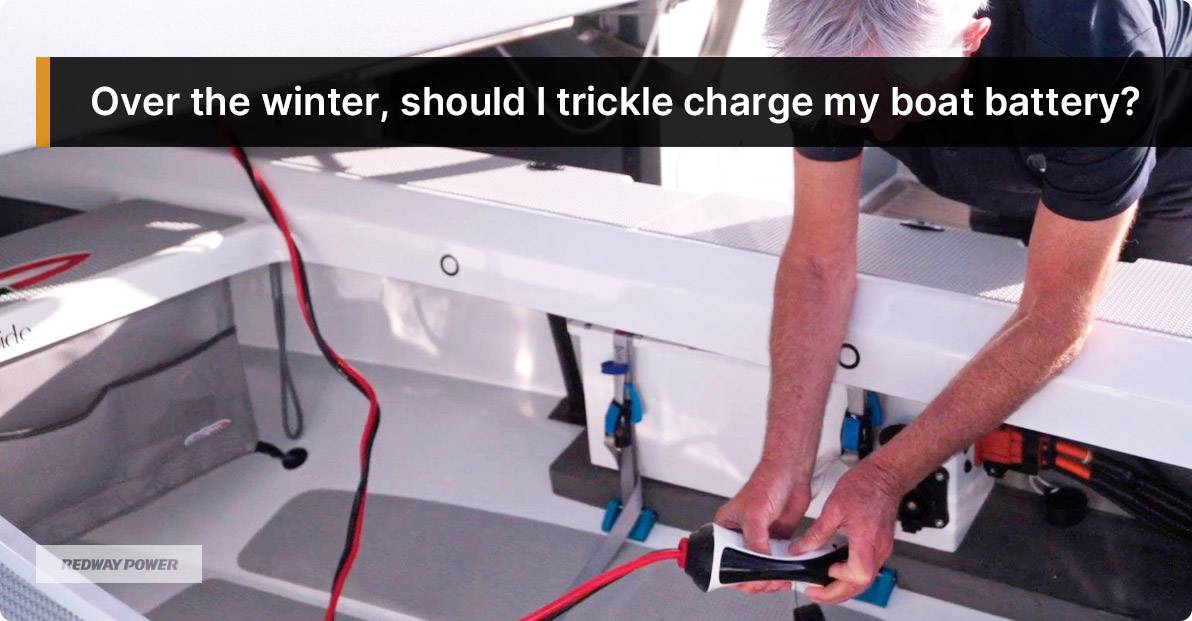
Inquiry Now














